#le pupille
Explore tagged Tumblr posts
Text

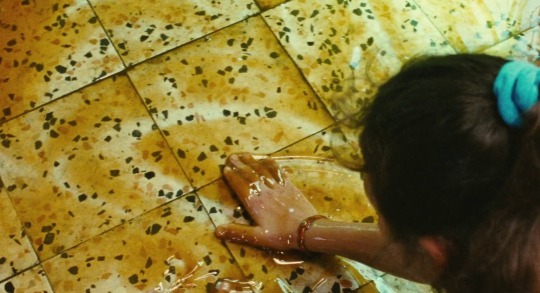
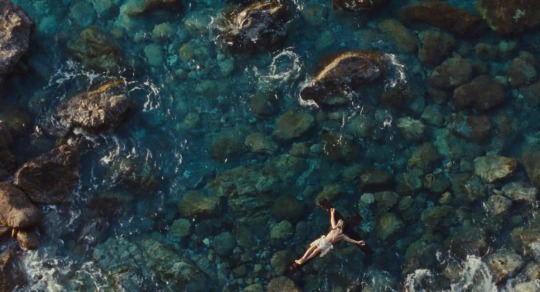
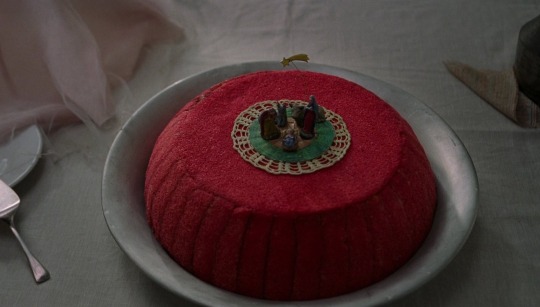

colors in alice rohrwacher cinematic universe
#happy as lazzaro#lazzaro felice#the wonders#le meraviglie#heavenly body#corpo celeste#le pupille#la chimera#alice rohrwacher#josh o'connor
328 notes
·
View notes
Text





all time favourite movies:
le pupille (2022), dir. alice rohrwachercase
#Le Pupille#alice rohrwacher#movies#mine#all time favourite#directed by women#non english speaking movies#case: child's perspective#short film
115 notes
·
View notes
Text






Le Pupille (2022) dir. Alice Rohrwacher
77 notes
·
View notes
Text

Le pupille (2022) ______________ dir. Alice Rohrwacher cin. Hélène Louvart cou. Italy
#le pupille#alice rohrwacher#2022 films#2022 short films#italian movies#Hélène Louvart#italian short films
14 notes
·
View notes
Text
le pupille (2022)
🎞️ watched 19.12.23 🎞️ rating 4/5 ☆

🎞️ thoughts
le pupille is an outstanding work on how simple shots can create a beautiful story. the colors, the lighting, the composition, the sparse dialogue… everything worked in unison. a modern christmas classic in my books!! it was my first Rohrwacher, but it left me wanting to consume her entire filmography. as a Wes Anderson fan, feels impossible to not draw a comparison, however even though Rohrwacher's style is reminiscent of Anderson's, it has a much more cozy feel of proximity between the viewer and what is shown on camera. Rohrwacher transports you into the plot, making you feel like an essential part of the story. as you can tell, i loved this. le pupille was such a genuine study on early-girlhood. the little social dynamics, the constant side eyes… if you’ve ever been a little girl, you know. it's comforting to see that girlhood struggles are freed of time and space, being an ever-present shared battle. i also see myself a lot in Serafina: equal parts quiet and curious. and my girl is not bad!! honestly, she’s the moment.

#olliewatchesmovies#cinema#cinemetography#movie review#le pupille#alice rohrwacher#alba rohrwacher#italian movies#christmas movies#disney+#short film
3 notes
·
View notes
Photo
A lovely lovely lovely short film about "evil kids" who have great moral compass and love sweets. 🧭




Le Pupille (The Pupils) (2022) Alice Rohrwacher
December 27th 2022
51 notes
·
View notes
Text
Today's Independent Study: Huai'en's Stargazing
Class is back in session and I'd like for us to focus on the google eyes that are only reserved for Jin Xiaobao. He looks at Xiaobao like Xiaobao hung the stars and moon exclusively for him.











No one gets to see these expressions, sometimes not even Xiaobao. Huai'en's eyes are wide with pride, fondness, and possession. Most times Huai'en looks at people in anger or indifference but when it comes to Xiaobao Huai'en gifts us with a full range of expressions.
This post only focuses on the amorous expressions from the last two eps but when the subject of Xiaobao comes up in relation to Huai'en we do see many other expressions we haven't seen and maybe I'll revisit them later because in eps 5 and 6 alone I saw flashes of rage, disgust, hurt, fear, and hopefulness on Huai'en's face and those expressions were all in relation to Xiaobao.
Like the carriage scene, the brothel scene, and the scene where Xiaobao's father talks to Huai'en are really good scenes to showcase Huai'en failing to mask his many feelings for Xiaobao.
#zongzheng huaien#huaibao#li le#huaien x xiaobao#meet you at the blossom#i might do stargazing from eps 3 and 4 too#i think it helps that li le wears such large pupiled contacts in the series#they make his eyes bigger and show expression better#there are also a few times where huai'en doesn't take his eyes off of xiaobao for almost an entire scene
89 notes
·
View notes
Text
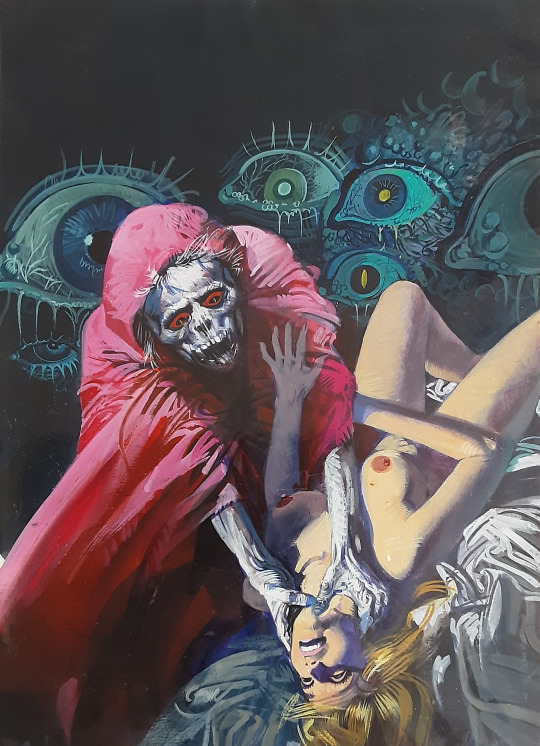
Giuseppe D'Angelico Daeni (1939–2010) - Le rosse pupille di Hilde
cover art for Oltretomba #50, 1973
#giuseppe d'angelico daeni#pino daeni#pino d'angelico#le rosse pupille di hilde#oltretomba#ediperiodici#cover art#horror art#pulp art#fumetti#art#painting
200 notes
·
View notes
Text

you know i had to do the "stuck in a box" ship art trope eventually
#brawl stars#brawl stars 8 bit#brawl stars sprout#sproutbit#ik sprouts claw looks weird but like.. le forgive me.. we all make le mistakes....#also had to give 8bit an eye pupil thing cause otherwise i didnt know how to communicate that its looking at the camera
28 notes
·
View notes
Text
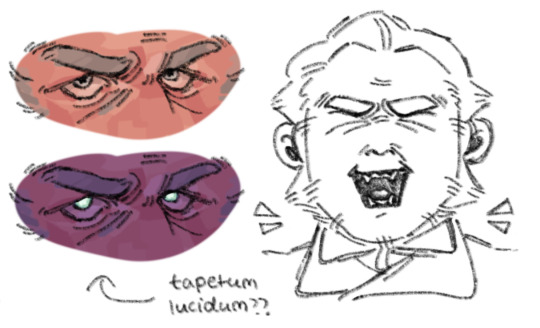
This was supposed to be a quick doodle but I got carried away. Ft. Javert’s tiger laugh
#is the tapetum lucidum thing like a book canon thing???#les miserables#javert#OH ALSO HIS PUPILS ARE STARS#I DONT KNOW IF THATS CLEAR
108 notes
·
View notes
Text

bro is looking DISrespectfully
#si`le#sile#si'le#demon#sin#sins#sin of lust#lust#seven deadly sins#the seven deadly sins#sds#oc#original character#downfall#down fall#hell#demons#wings#horn#tail#horns#heart#heart pupils#heart eyes#pink eyes#THE GUY#downfall si`le#down fall si`le#downfall sile#downfall si'le
2 notes
·
View notes
Text
La cuisinière des Kennedy de Valérie Paturaud
As-tu également été bercé.e au rêve américain, aux histoires de succès éclatants à la Bernard Tapie, aux paillettes et à la jet-set ? Pour ma part, un peu, surtout à travers le magazine Paris Match que mon père rapportait à la maison chaque semaine. Les Kennedy sont indéniablement l’une des familles les plus exposées médiatiquement depuis les années 50. Même si leur présence est moins marquée de…

View On WordPress
#2024#Abandon#amitié#Assistance publique#Autrice française#Biographie romancée#Cuisine#Destin#Editions les Escales#Etats-Unis#Famille#Femme#France#Histoire#Kennedy#La cuisinière des Kennedy#Liens#Littérature française#littérature générale#Parcours de vie#Président des USA#Pupille de la nation#Roman#Roman historique#Valérie Paturaud
0 notes
Text
⊹₊⟡⋆ WHAT DOES IT MATTER?
darkish!wanda maximoff x fem!reader
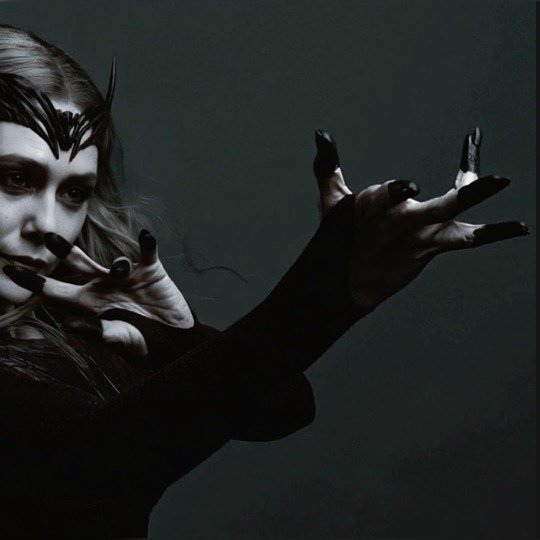
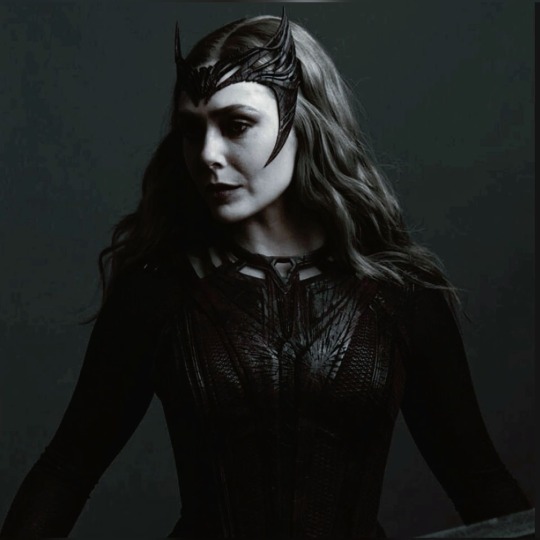
✮⋆˙summary
wanda was acting a little odd, seemed a little different too. but what does it matter, when she still takes care of you so good?
✮⋆˙trigger warnings
darkish!wanda, smut, fingering (r receiving), kind of dubious consent?,
✮⋆˙author’s note
hey, starling here! this is my first post on tumblr, my first try at smut — as one maybe can tell. let me know what you think :)
her eyes were dark, the gentle green you so love almost completely invisible behind her enlarged pupil and the faint red of her magic. and wanda just stared.
her hands are wrapped around your waist, her finger digging into your skin through the apron and shirt you‘re wearing. you aren’t wearing much — wanda likes it that way.
„hey, baby“, you said. a little breathless, a little stunned by her sudden appearance and slightly odd behaviour. normally, you were used to wanda‘s slight oddness, but this was a new level of odd, even if she didn’t do anything.
well, that was exactly what was so off about her.
you‘re eyes roam over her, your brows furrow a little in confusion. „uhm- weren’t you wearing something else when you le-"
you don’t get to say much more. delicious, hot and needy lips where on yours. you huff surprised but then you cup her cheeks and pull her in closer. her clothing was different than what she had left in earlier that day, her lips were definitely more chapped than earlier that day too — you knew, since you had kissed wanda senseless before she had left.
but as wanda pulls you impossibly closer by your waist and slots a knee between your legs, all of those thoughts disappear. what did it matter, what wanda was wearing? or how her lips seemed more chapped? what did it matter, when wanda was making you feel as good and loved as always?
it didn’t. so you kissed back with just as much vigour and need as wanda was.
wanda’s hand slipped down your side and reaches your naked thigh, tugging at the hem of your shirt before sliding between your legs. the deicious pressure of wanda’s knee slipped away but before you complain, it was replaced by her fingers, rubbing circles on your clothed cunt.
wanda was greedy. it didn’t take her long to slip her fingers below your panties and tease your mound, while her lips where on your neck. nipping and biting as if she was marking her territory. you were sure the hickeys would look good with your wedding ring.
you where wanda’s. utterly hers, no one else’s.
it wasn’t until wanda’s fingers finally stopped their teasing and slipped into your wet entrance, that you noticed another change. wanda’s fingertips where uncomfortably rough, rubbing against your inner walls in a manner they never head before.
it was both pleasurable and painful — but the way your wife sped up her movements, you didn’t have much time to form a sentence.
wanda’s fingers, two if you were feeling correctly, where pounding in and out of you at a relentless speed. in and out in an out — curling deliciously to hit your g-spot. fuck it was good.
“oh- wanda”, you moan into her ear, your head leaning against her shoulder. panting and trembling from her restless finger fucking. she huffs, or chuckles, you don’t really now.
“come for me, malysh”, wanda husks.
now that’s something you can’t ignore. her voice is much rustier than usually, hoarse and her accent way more prominent. your brows furrow, but before you can wonder too much about it, your stomach coils together.
with one last, sharp thrust into your cunt, you moan out loud and cum. your vision turns white, little gasps and whines escape you as you cling to wanda. your body shaking.
wanda gingerly pulls out — now you see why her fingers had felt so rough and calloused. the tips where black. but why?
with sweat sliding down your temple, rigid, fast breaths leaving your lips, you manage to lift your head and look at her.
this wasn’t your wanda.
a small smirk grows on wanda’s lips. it seems both smug and sad. “you were always such a smart thing, malysh. smart, but slow”
it’s the last thing you hear, before her magic invades your brain and makes you fall unconscious. her arms wrapping around you the last thing you feel. her eyes, hinted with red and that damned smirk, the last thing you see.
#wanda maximoff smut#dark!wanda maximoff#wanda maximoff x reader smut#wanda maximoff x reader#wanda’s darkhold fingers are hot#wlw#wlw smut#wlw blog#widows’ works#wanda maximoff#marvel#lesbian
1K notes
·
View notes
Text



i found the best splatoon picrew of all time
(featuring my side order inktoling OC agent 9 who definitely doesnt have any self insert traits at all /s)
#le p2iigh#gmo: genetically modified octoling#anyway i love how u can change the eye expressions by moving the iris + pupil graphic#in addition to the eyelid stuff
0 notes
Text
POSITIONS𑁍
old man!logan howlett x housewife!reader
cw: oral (f receiving), fingering, bit of fluff, soft logan *mdni
wc: 900+
a/n: next mini-series will be inspired by the album positions by ariana grande. if you would like to be added to the tag list comment below. not sure how many parts yet but I hope you enjoy!
part two

home has always been a sore spot for logan. the mutant never had much of a place he could truly call home. always on the run, never somewhere long enough to enjoy it. now in his old age, he's been granted the life he always longed for.
"lo, come try this!" his little wife, calls to him in the kitchen.
the sight of you and your cute apron mixing ingredients could bring logan to his knees; and has on many occasions. how did a dangerous fucked up man like him end up with the sweetest girl in town? every day, you're in the kitchen learning new recipes while looking all dolled up for him.
the part that always gets logan hard is knowing you want to do this for him. you were smarter than anyone he'd ever met yet, you loved the simple domesticity of your life with logan. you knew when the two of you met that he craved an older lifestyle that you didn't mind adjusting to. logan thought that you were truly heaven-sent.
"think i finally got the recipe right." you held out a spoon for him. logan groaned at the taste, his hands resting on your hips, pressing you into the countertop slightly. "whatcha think?"
"think it might be the best frosting you've ever made," he mutters against your skin, leaving kisses along your neck and jaw.
"that good?" you smile, licking the rest of the spoon clean.
logan watched with dark pupils, grinding himself against your ass with every little moan that slipped past your lips.
"might just be the second best thing you've let me taste," he admits, forehead falling into your neck to catch his breath.
"second?" you tease, turning around to face him. "what's the first, baby?"
you claimed you weren't a mutant but logan thought that was the only explanation for how quickly you managed to bring him to his knees. his big rough palms caress your thighs, squeezing whatever he can—whatever he wants— until he slips them under your pretty light green dress.
logan stares at eye level with your white lacy panties and the large wet stain forming in them. he's got you sprawled out on the countertop with both legs dangling off his broad shoulders, heels digging slightly into his shoulder blades. your dress and apron were bunched up at your stomach.
"isn't she pretty..." logan says to himself, hooking them to the side to get a better look at your exposed pussy. he blows cold air directly on you. a loud whine falls from your lips as you claw at the edges of the counter and attempt to wiggle your hips in the air.
"lo, please..." you beg, looking down at him as he slides the thin material down your legs and spreads you as far as he can.
"you've been such a good girl, sweetheart." logan praises, letting his thumb circle your button slowly in a way that leaves you needing more. "so obedient and versatile, aren't ya'? one minute you're cooking me dinner and the next you're begging to ride me."
you nod, lazily; trying to enjoy every movement he makes.
"think you deserve a reward." he hums before lapping up your wetness, swirling his tongue in downright sinful ways.
not only did you taste as sweet but the little noises that escaped you were even sweeter. a hand of yours laced itself in logan's grey hair, tugging him impossibly closer until his nose bumped your clit, making you sing like a bird. didn't help that logan let his most primal side show, moaning into you and making a complete mess of you.
"so needy, isn't that right, honey? just leakin' for attention." he says, talking to your pussy rather than to you directly while teasing a finger at your entrance. "makin' a mess all over me."
logan pulls back to spit on your pussy; sending your head flying back against the countertop.
"fuck..." you moan, left hand groping your own tit. "feels sooo good, lo.."
logan catches the light off of your wedding band while you squeeze yourself. this kickstarted something deep inside of him. even in the filthiest of moments between the two of you, you managed to fill his heart with love. his mouth returns, drinking you up like water. you flooded all of logan's senses; he could hear your heart thumping in your chest, smell how badly you needed him, and taste how he made you feel.
"taste like fuckin' candy," he growls, adding another finger to hit that spongy spot deep inside of you over and over again.
"please..." you purr, looking down into his almost black eyes. "so close.."
logan could feel you clenching around his fingers; practically suffocating them. his moans vibrating your core didn't help slow down your climax either. all of it crashing into you at once.
"there's my pretty girl," he smirks, still fingering you through your orgasm. at this point, you didn't care what part of you he was talking to anymore; all you wanted to do was kiss him.
"need you, logan." you whine, tugging at the collar of his shirt until he's face to face with you.
logan assumes that you want him to fuck you; undoing his belt as quickly as possible until you stop him.
"gimme kiss."
there you were with your dirty apron, wild hair, and pouty lips begging for a kiss. who was logan to deny you such a request? his soaked beard scratched against you with passion as his tongue entered your mouth. his big hands cradle your face delicately.
logan wasn't a good man by the textbook definition but he'll be damned if he didn't treat you as good as you deserved.
#logan howlett x reader#james logan howlett#logan howlett#hugh jackman wolverine#wolverine angst#wolverine x reader#deadpool and wolverine#logan howlett angst#logan x reader#logan howlett smut#old man!logan#old man logan x reader#wolverine fluff#wolverine one shot#wolverine x oc#logan wolverine#wolverine#wolverine smut#logan howlett oneshot#logan howlett fluff#logan howlett imagine#logan howlett fanfiction#marvel cinematic universe#marvel#mcu#hugh jackman#logan howlett x oc#wolverine x you#x men comics#x men
2K notes
·
View notes



